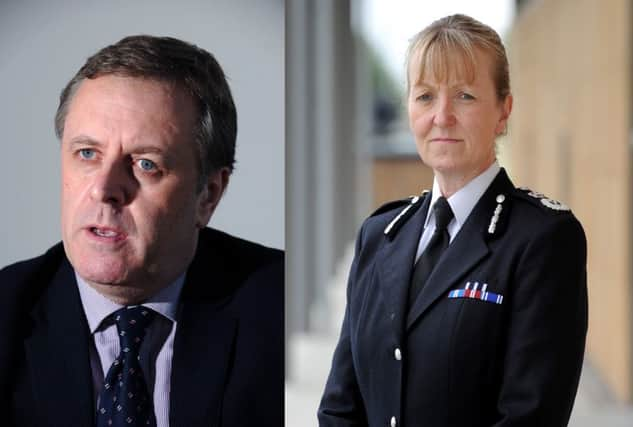Video: Police chiefs speak out ahead of spending review


West Yorkshire is the fourth largest police force in England and Wales and has areas of some of the greatest policing need but is one of the hardest hit by Government cuts.
The Police and Crime Commissioner and T/CC wanted to explain to MPs what even further damaging cuts would mean to policing in their communities and ask them to put pressure on the Government in advance of the CSR for the resources to protect neighbourhood policing.
Advertisement
Hide AdAdvertisement
Hide AdMark Burns-Williamson, said: “During the meeting I told the MPs in no uncertain terms about what yet more cuts would mean. The Government is taking a gamble with public safety.
During the meeting the Police and Crime Commissioner and Temporary Chief Constable reiterated their commitment to neighbourhood policing.
Temporary Chief Constable Dee Collins said: “Since the beginning of the Government austerity measures in 2010, we have been required to deliver £140m in savings by 31 March 2016. The savings we have already made and the plans we have in place mean we will have achieved £138m of this.
“Until we know the scale of the Government cuts, we cannot predict with any certainty just how they will impact upon our services and in what areas. What we do know however, is that we will have to make some extremely difficult decisions, even if the cuts emerge at the lower end of that register.
Advertisement
Hide AdAdvertisement
Hide Ad“We are now approaching a crucial point where further cuts will undoubtedly mean we, like other public services, can no longer go about our core purposes in the same way as before. In the future, we will need to distinguish between what we could do and what we must do to keep the most vulnerable in our county safe.”